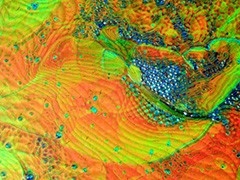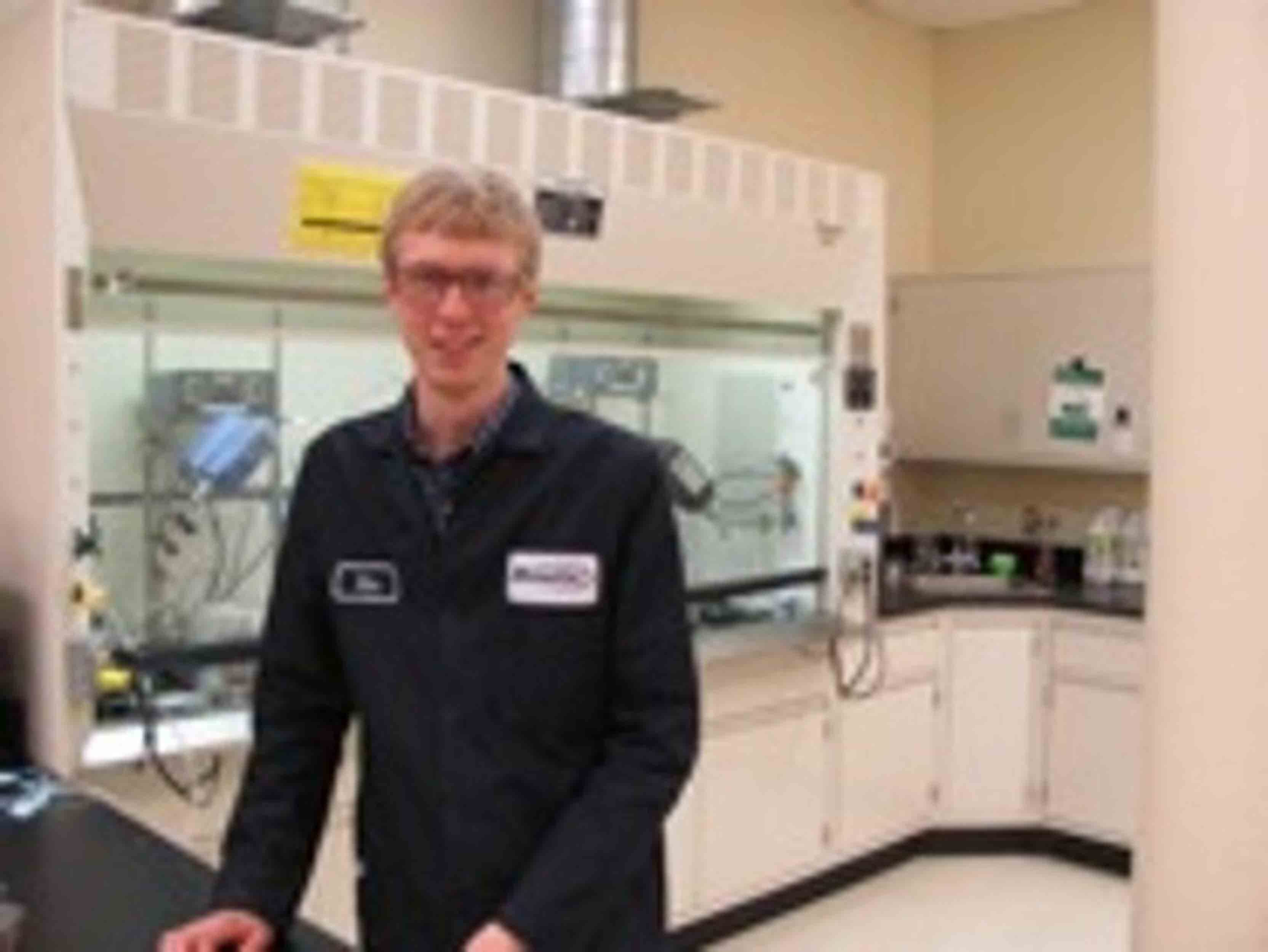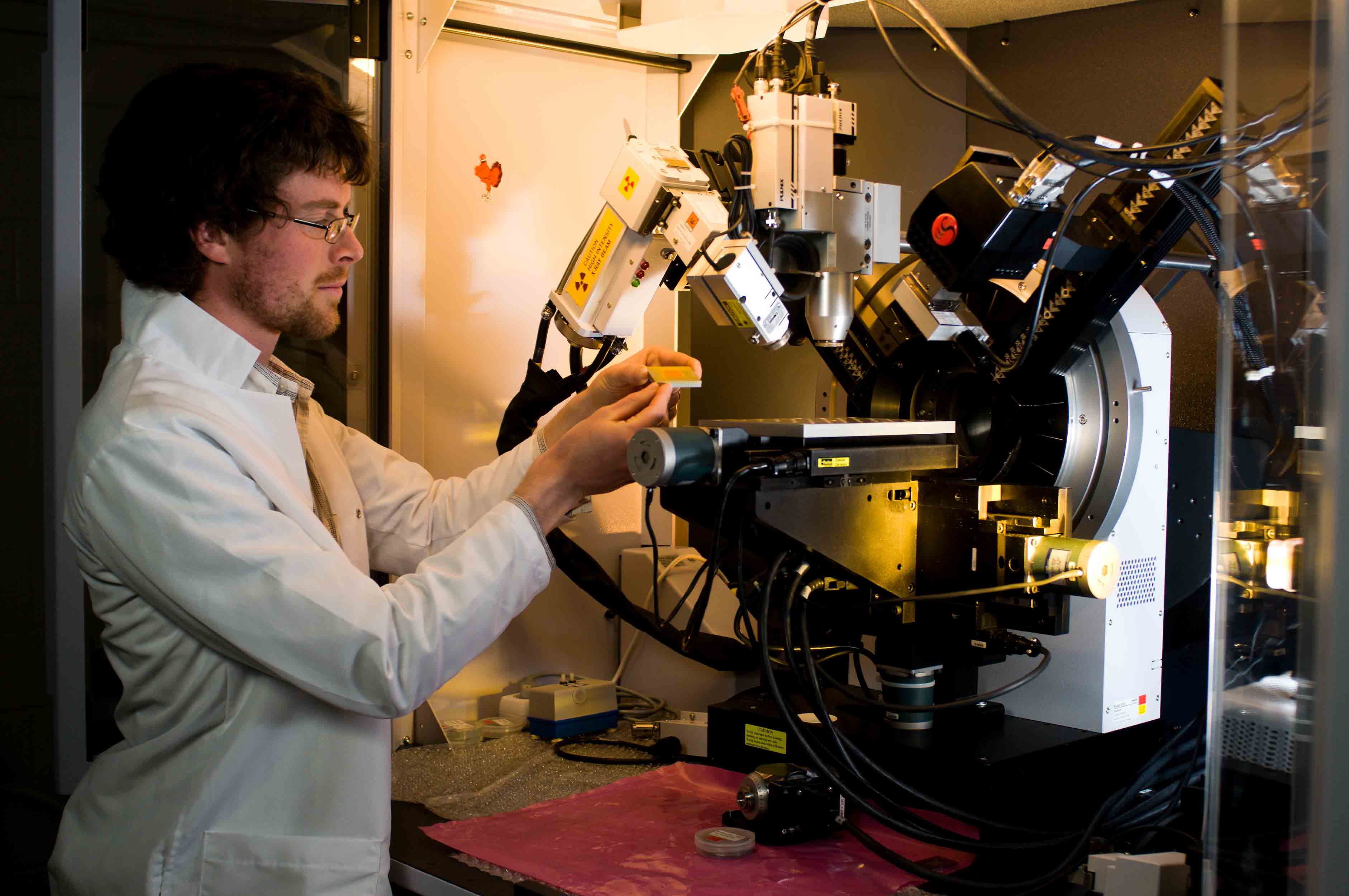Sustainable Biomaterials Science
What is Sustainable Biomaterials Science?

- In the Sustainable Biomaterials Science option you will learn the science and chemistry involved in making new renewable products and bioenergy from sustainable materials.
- You will learn the basic principles of how sustainable biomaterials are produced in nature and how they can be used to make a variety of advanced products.
- Students apply basic science principals in areas ranging from nanotechnology applications to the production of biofuels and energy-storage devices made from natural polymers.
Where is Sustainable Biomaterials Science Used?
Virginia’s Energy Plan has the objective of increasing Virginia’s reliance on and production of sustainably produced biofuels made from traditional agricultural crops and other feedstocks that will create jobs and income, produce clean-burning fuels, and provide new markets for Virginia’s silvicultural and agricultural products (The Virginia Energy Plan, 2010). Virginia and the United States will need you to help apply your knowledge of the science behind renewable materials to enact this energy plan.
Hands-on experience
Courses in the Sustainable Biomaterials Science track give you a strong scientific foundation to understand the chemical and physical properties of plant-based and other renewable resources and natural and industrial processes for their biosynthesis, biodegradation, and industrial conversion into materials, chemicals, and energy.
Here you will learn by doing, and experiencing; from visiting a business, like a paper mill, testing your hypotheses in laboratory or field research (either in the summer or during the semester), and participating in field studies and laboratory courses. Moreover, the department maintains close connections to companies that offer paid summer internships, providing great opportunities to apply what you have learned in a professional setting.
After You Graduate

Daniel Roethle
“I am a chemist in the Upstream Research group at Bostik. In this group, I have the opportunity to investigate the next generation of adhesives, helping to shape the future of how our homes, cars, and consumer products are bonded together. One of my special projects is to identify sustainable bonding solutions. Just a few of the qualities I target are the renewable content, biodegradability, and recyclability of our raw materials and final products. As the demand for sustainable products continues to grow, it is my job to ensure that Bostik has the technology to match.”

Carter Fox
“I am currently working for Weyerhaeuser at the Weyerhaeuser Technology Center in Federal Way, WA. My primary research project is on the Northwest Advanced Renewables Alliance (NARA) biofuels project, which is being funded by the USDA. The overall objective of the project is to develop a pathway to manufacture jet fuel from wood biomass. My specific role is working on a team to take the lignin produced as a byproduct of the jet fuel manufacturing process, characterize it, and create useful, value- added products from it to improve the economic viability of the entire project.”
Sustainable Biomaterials Science
Introductory Courses
Find out what courses to take if you are interested in Sustainable Biomaterials Science.
For more information
Contact a Student Ambassador or Faculty Member.


